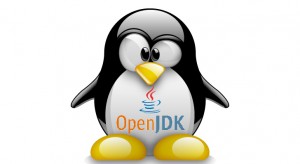I already wrote about it in an earlier post, that I was working on packages for OpenJDK. OpenJDK is an open-source implementation of the Java Platform, Standard Edition. In 2007, Sun delivered to its earlier promise to make Java open source and released the bulk of its code under a GPL license. Since then, high-profile companies like IBM and Apple have done major contributions to the OpenJDK codebase in order to create an industrial-strength alternative to the binary releases of Java SE..
Oracle assimilated Sun in 2010 and obtained the rights to Java SE.
For Linux distros, not much changed because binary releases of the JDK and JRE were still made available for re-distribution. In 2011 however, Oracle decided that new binary releases of its Java SE (the runtime or JRE as well as the SDK) may no longer be included with Linux distros. They retired the “Operating System Distributor License for Java” (DLJ) and decided that distros should compile their own packages using the Open Source codebase of OpenJDK,.which Oracle itself uses as well for their binary builds.
Of course, you as an “individual user of Java SE” still have the legal right to download and use Oracle’s binaries – you’re just not allowed to re-distribute it. Making a Slackware package out of your Oracle-downloaded binaries is simple – use the jdk.SlackBuild or jre.SlackBuild scripts which are part of Slackware and “wrap” those binaries into a convenient package.
While this is a nice solution for the individual, our own Slackware had to stop updating its Java packages. It now has to solve the question of keeping or removing Java from its distribution. Since Oracle’s binaries can no longer be included, Slackware has to follow the advice and build its own Java from source.
This situation now lasts since august 2011 and it is bothering me. So, in November 2011 I made a promise to Pat Volkerding that I would create a set of Slackware packages for the OpenJDK. Unfortunately that took me longer than expected because a lack of time and because (as outlined in my previous post) I wanted to build them in such a way that I could use the SlackBuild scripts on ARMedslack which still lacks a Java package.
I uploaded the results of my efforts last week but Pat has not responded since, so I am making the packages and sources/scriptes available to a wider audience. Please note that I named the resulting packages “openjdk” and “openjre” but the packages that could get included into Slackware eventually may be named differently (like “openjdk-jdk” and “openjdk-jre”). In any case, I invite you to test them and report your findings.
You can get all of it here: http://connie.slackware.com/~alien/openjdk/ with a mirror here: http://alien.slackbook.org/slackware/openjdk/
For ready-made packages (for Slackware-current !) you can check the two directories “pkg64” (containing 64bit versions) and “pkg” (for the 32bit version of Slackware). If you want to install my pre-built packages, then all you really need are “rhino” which is the JavaScript engine, “icedtea-web” which is the browser plugin, and one of “openjdk” or “openjre” packages, depending of course on whether you need the full Java compiler suite or only the Java Runtime Environment.
You will also find packages for apache-ant, xalan and xerces. These are only needed if you want to re-compile OpenJDK yourself. If you want to build your own packages instead of using (or after installing) mine, then follow the instructions in the sources/README.txt file. If you are not running Slackware-current but one of the stable releases, then compiling from source will be your only option.
For you wannabe-compilers, I will repeat part of that README text here. OpenJDK will not compile successfully on Slackware unless you make some modifications to the gcc and seamonkey packages. You can either recompile those using the modified SlackBuild scripts and sources which I also provided in the openjdk sources tree, but you can also choose the less intrusive alternative by running (as root !) two small shell scripts that add the missing functionality to your system: create_gcj_jvm.sh and fix_seamonkey_pkgconfig.sh. These two scripts should work on every Slackware release.
After running the two shell scripts (or after rebuilding gcc and seamonkey) you are ready to (build and) install apache-ant, xalan, xerces and rhino, logout and log back in again to set the ANT_HOME environment variable, and proceed with building OpenJDK and icedtea-web. Good luck!
Any questions or feedback about these scripts and packages? Please post them here and I will follow up.
Cheers, Eric

Recent comments